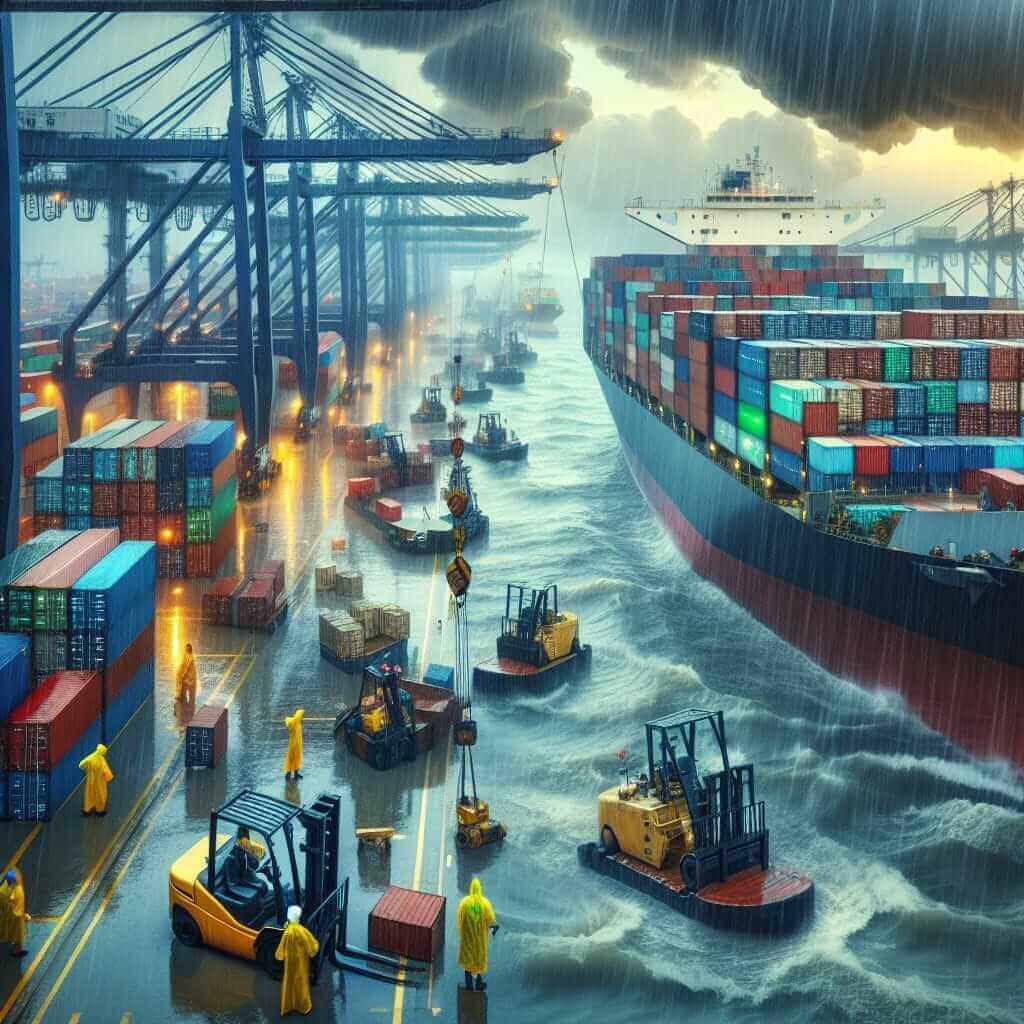The IELTS Reading section is designed to assess a wide range of reading skills, including your ability to identify the writer’s purpose, and opinion, and understand the overall logic of the text. One common approach in recent IELTS exams is to present topics that are both timely and relevant to global issues, such as climate change. Given the growing emphasis on sustainability and the environment, understanding how climate change affects global trade is not only academically enriching but likely to appear in IELTS Reading sections.
This article provides a comprehensive reading practice test based on the keyword “What are the impacts of climate change on global trade?”. This topic is relevant and frequently discussed, making it a probable choice for future IELTS exams.
IELTS Reading Practice Test: Medium Text
Reading Passage
Climate change is an urgent global issue that is widely acknowledged to have a significant impact on various aspects of human life, including global trade. The increasing frequency and severity of extreme weather events, shifts in climate patterns, and rising sea levels are all factors that can disrupt manufacturing processes, supply chains, and logistics. These disruptions, in turn, can lead to increased costs, delays, and loss of goods.
One of the prominent impacts of climate change on global trade is the damage to infrastructure. Ports, roads, railways, and airports, which are critical for the movement of goods, are increasingly vulnerable to climate-induced events such as hurricanes, floods, and extreme temperatures. For instance, major ports along the Gulf Coast of the United States have experienced significant delays due to hurricane-induced damage. Similarly, floods in Southeast Asia have disrupted both regional and international trade routes.
Agriculture, a critical component of global trade, is also severely affected by climate change. Changes in temperature and precipitation patterns, along with the increased frequency of droughts and floods, can drastically alter agricultural productivity. This impacts food security and trade, leading to fluctuations in the availability and price of agricultural products. Countries heavily dependent on agricultural exports, such as Brazil and India, face economic instability due to these climate-induced changes.
Additionally, climate change affects the labor market within trade sectors. Extreme temperatures can reduce labor productivity in industries such as construction and outdoor manufacturing. Health issues related to heat stress can result in labor shortages, thereby disrupting the supply chain.
Moreover, as nations and industries strive to mitigate climate impacts, new regulations regarding carbon emissions and sustainable practices are being implemented. These regulations can create trade barriers and alter competitive advantages among countries. For example, the European Union’s carbon border adjustment mechanism imposes taxes on non-compliant imports, influencing global trade patterns.
In conclusion, climate change imposes multiple challenges on global trade, from infrastructure damage and agricultural disruption to new regulatory landscapes. As climate impacts become more pronounced, it is imperative for policymakers and businesses to develop adaptive strategies to mitigate these risks and ensure the resilience of global trade networks.

Questions
Multiple Choice
-
What is a significant way that climate change impacts global trade?
a) Increase in tourism.
b) Damage to infrastructure.
c) Decrease in technology use.
d) None of the above. -
Why is agriculture particularly vulnerable to climate change?
a) It relies heavily on technology.
b) It requires a stable political environment.
c) Climate change alters temperature and precipitation patterns.
d) It needs constant innovation. -
How does climate change affect labor productivity?
a) By increasing unemployment rates.
b) Through health issues related to heat stress.
c) By creating new job opportunities.
d) None of the above.
True/False/Not Given
- Ports along the Gulf Coast of the United States remain unaffected by hurricanes. (True/False/Not Given)
- New climate regulations can alter competitive advantages among countries. (True/False/Not Given)
- Extreme weather events can decrease the price of agricultural products. (True/False/Not Given)
Sentence Completion
- Climate change can lead to increased ____ (delays/costs/job opportunities) in global trade logistics.
- Carbon border adjustment mechanism in the EU imposes taxes on ____ (compliant/non-compliant/sustainable) imports.
Answers
- b) Damage to infrastructure.
- c) Climate change alters temperature and precipitation patterns.
- b) Through health issues related to heat stress.
- False.
- True.
- Not Given.
- costs.
- non-compliant.
Common Mistakes
- Misreading Question Context: Often, candidates may overlook essential details in the passage. Ensure you understand the exact requirement of each question.
- Vocabulary Misinterpretation: Words like “fluctuations,” “infrastructure,” and “mechanism” are critical. Misinterpreting these can lead to incorrect answers.
Vocabulary
- Infrastructure (n.): /ˈɪnfrəˌstrʌkʧər/ – The basic physical systems of a business or nation.
- Mitigate (v.): /ˈmɪtɪˌgeɪt/ – To make less severe.
- Carbon border adjustment mechanism (n.): A policy tool that imposes carbon tariffs on imports from countries not adhering to climate standards.
- Precipitation (n.): /prɪˌsɪpɪˈteɪʃən/ – The amount of rain, snow, etc., that falls.
Grammar Point
- Relative Clauses: “Ports, roads, railways, and airports, which are critical for the movement of goods, are increasingly vulnerable…”
- Structure: Antecedent + Relative Pronoun + Relative Clause.
- Example: “The factory, which produces electronics, is located in Japan.”
Advice for a High Reading Score
- Practice Skimming and Scanning: Quickly identify the main idea and locate specific information in the text.
- Improve Vocabulary: Regularly read articles on various topics to enhance your word power.
- Work on Time Management: Allocate specific amounts of time to each passage and question, practicing under timed conditions.
- Understand Question Types: Familiarize yourself with the different types of questions you’ll encounter, such as matching headings, true/false/not given, and multiple-choice.
By consistently practicing with high-quality reading materials and following these tips, you can significantly enhance your performance in the IELTS Reading section.